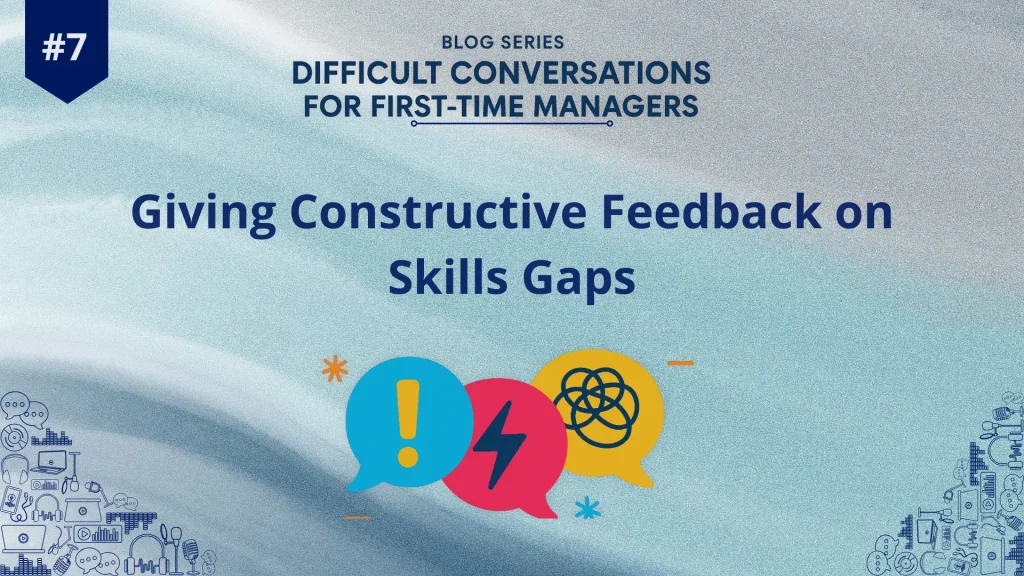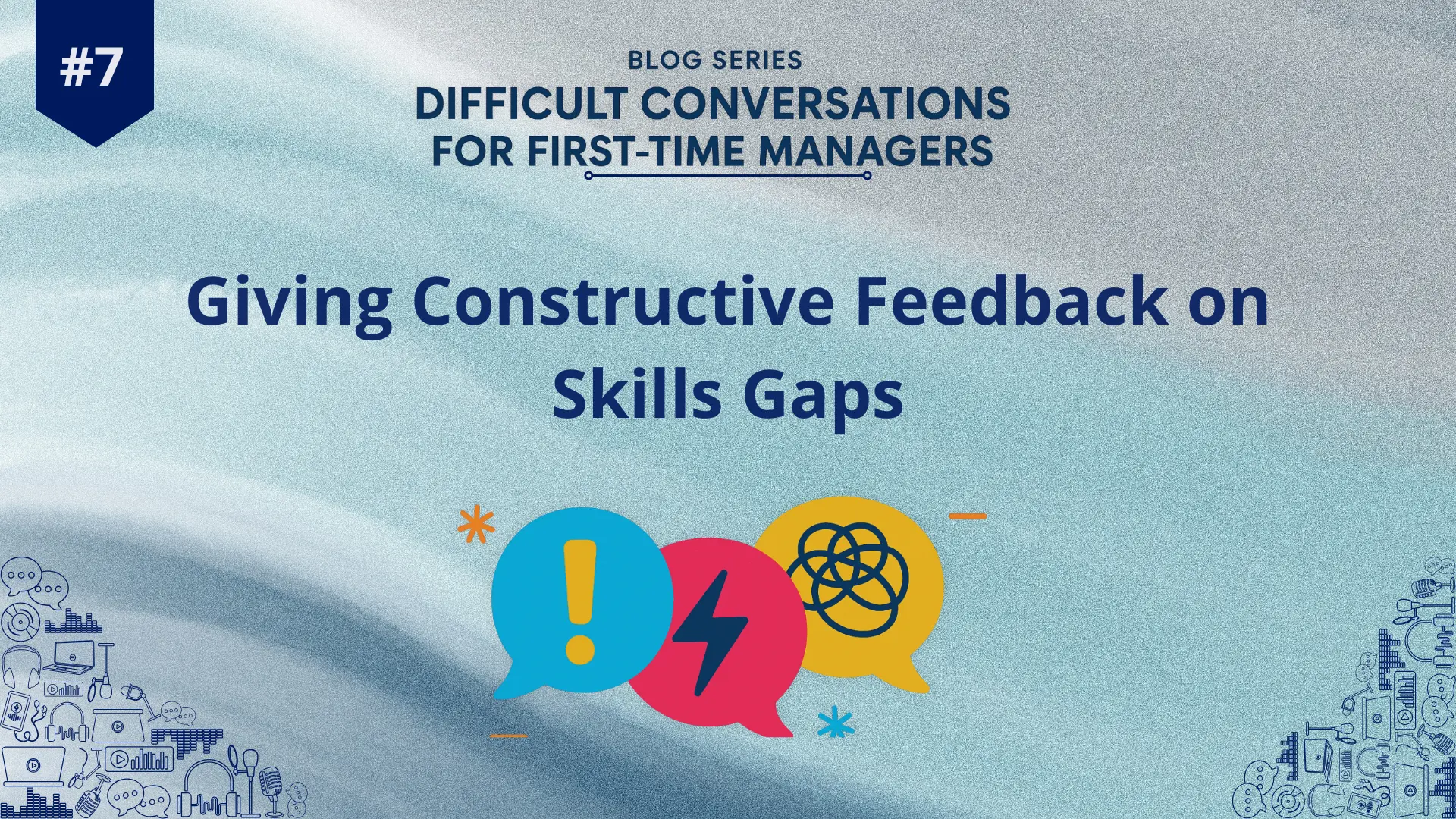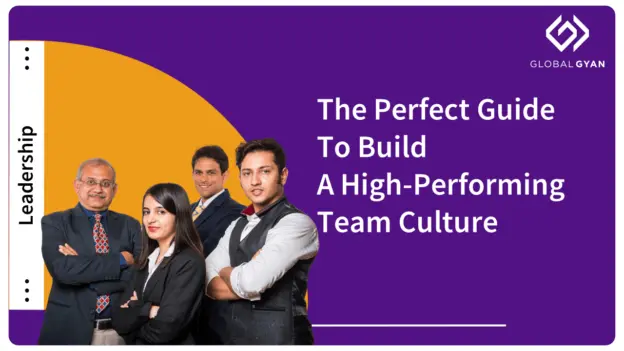Is leadership just about praising people when things go well?


That question might sting a little. But let’s be honest—when was the last time you gave honest, constructive, and forward-looking feedback to someone who was underperforming?
For most first-time managers, giving feedback about a skills gap is one of the most uncomfortable parts of the job. You’re torn between being supportive and being direct. You don’t want to demotivate your team member. But you also can’t afford to ignore the performance issues.
So, how do you walk this tightrope without falling off as a leader—or taking your team down with you?
The Leadership Moment You Didn’t Expect
When we imagine leadership, we think of big-picture thinking, team wins, and inspiring town halls. But the real leadership moments happen in those quiet, one-on-one conversations—when you sit across from someone and say:
“You’re doing many things right. But there’s one area that’s holding you back—and we need to talk about it.”
That’s when your leadership is tested—not in applause, but in eye contact.
Why Feedback on Skill Gaps Feels So Hard
Giving feedback isn’t just about delivering information—it’s about navigating human emotions, especially in Indian workplaces where hierarchy, respect, and saving face play a major role.
Let’s take a common scenario:
Ravi, your team member, is technically sound but struggles with client communication. You know this is affecting project delivery. But you also know Ravi is sincere, and pointing this out might crush his morale.
So, you delay the conversation.
But here’s the truth: Delaying feedback doesn’t protect your people—it denies them the chance to grow.
Lead with SBI: A Simple Feedback Framework
When feedback feels overwhelming, use the SBI model—Situation, Behavior, Impact. It helps you focus on facts, not feelings.
Let’s apply it to Ravi:
- Situation: “In yesterday’s client call…”
- Behavior: “…you paused often and struggled to explain the project updates…”
- Impact: “…which made the client unsure about our readiness. That could delay sign-off.”
This keeps the conversation grounded and non-judgmental.
Giving Feedback on Skills Gaps — A Leadership Blueprint
Step | Leadership Action | Example in Indian Workplace |
|---|---|---|
Prepare | Understand skill gaps and personality | Is Priya defensive or self-aware? Tailor your tone. |
Use SBI | Keep it factual, not personal | “In last week’s review…” |
Co-create a plan | Involve them in solutions | “How do you want to work on this?” |
Offer support | Be coach, not critic | Recommend a course, assign a mentor |
Follow up | Review progress, don’t disappear | Set a 30-day check-in |
Real Talk: It’s Not One-Size-Fits-All
Feedback isn’t copy-paste. Personalities matter.
- For introverts: Be encouraging. Highlight strengths before areas of growth.
- For assertive high-performers: Use peer-to-peer tone. Frame it as “level-up” feedback.
- For people-pleasers: Help them set boundaries. “Saying no is also a skill.”
Cultural Nuance: Feedback with Empathy
In Indian workplaces, feedback often comes top-down and once-a-year in appraisals. Let’s change that.
Instead of saying:
“You’re not ready to lead client meetings.”
Try:
“Your analysis is strong. Let’s work on packaging it for external audiences—maybe start with internal presentations.”
This makes feedback feel like investment, not punishment.
“Average leaders raise their own bar. Great leaders raise the bar for others—with empathy”
— Adapted from Orrin Woodward
Coaching in Action: A Real Case
In one coaching session, a first-time manager from Pune shared this:
“I avoided telling one of my team members about their gap in data analysis. I didn’t want to upset them. But when the mistake hit a client report, I realised—not saying anything was worse.”
After training in SBI and practicing in role-plays, she finally had the conversation. Her team member responded:
“Thanks for being honest. No one told me this so clearly before.”
That’s the kind of leadership people remember.
What You Can Do Today
- Pick one team member who needs growth-focused feedback.
- Use the SBI model to plan your script.
- Schedule the conversation—don’t let fear delay growth.
- Reflect after the talk: What worked? What didn’t? What will you do differently?
References & Resources
- Center for Creative Leadership – Feedback Models for First-Time Managers
- Harvard Business Review – “The Feedback Fallacy”
- LinkedIn India Workforce Report (2024) – Skill gaps in Indian corporate roles
- SBI Model – Developed by Center for Creative Leadership
Final Word: Feedback Isn’t a Punishment. It’s a Privilege.
When done right, giving feedback on skills gaps becomes a gift. A turning point. A conversation that says: I see your potential, and I’m invested in your growth.
As a first-time manager, you have the power to shape careers—not by avoiding discomfort, but by leaning into it with courage and care.
Ready to have that conversation?
This article is contributed by the GlobalGyan Editorial Team as part of our Leadership Essentials series.
In our series ‘Difficult Conversations for First Time Managers’ by Guan D’Penha, Senior Manager – Learning Solutions at GlobalGyan Leadership Academy, we will be sharing insights on the challenges faced by first-time managers.
In the next chapter, we explore a conversation every leader must master—Giving Constructive Feedback on Skills Gaps: The Leadership Conversation Flow. Also, stay tuned for our upcoming article, “Am I a Good Leader If My Team Feels Disappointed?”—a reflection on how to tell an employee why they weren’t promoted, without breaking their spirit.






Responses